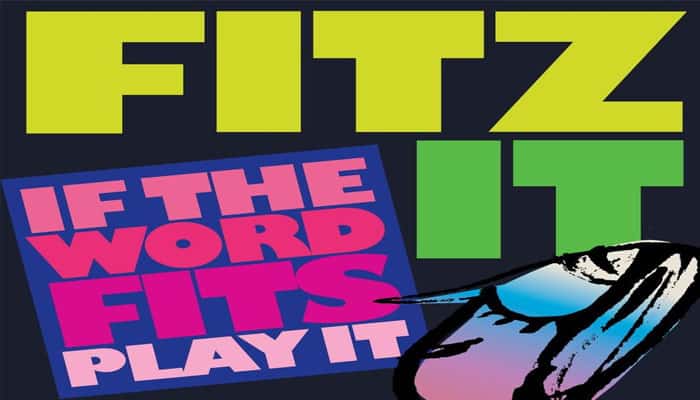

Components
- 265 cards
- Instructions
Object of the Game
Be the first player out of cards by naming objects that fit the descriptions and playing them to the grid.
Setup
Note: With more than four players, play in teams so that there are no more than four teams total.
Each player randomly draws 15 cards from the box and stacks them face down in a pile in front of them. (Place the box off to the side, within reach of everyone).
Draw the top five cards from your stack and hold them in your hand, out of view from other players.
Randomly place one card from the box face up into the center of the playing area as the starting card.
Game Play
Whoever is the most fit starts the game and play passes to the left.
On your turn, look at the cards in your hand, as well as at the card(s) already in play. Then try to think of an object that fits the descriptions of as many cards as you hold, along with at least one card in play.
Announce your object out loud and then place your chosen cards next to the card(s) in play.
End your turn by drawing back up to five cards from your stack. (If you have fewer than five in your stack, draw the remaining cards).
Note: Instead of playing cards, you may optionally discard as many as you wish from your hand out of play and draw new cards from the box. However, this counts as your turn.
Placing Cards and Declaring Objects
-
Your object must be a tangible noun, not an abstract thought or idea.
-
You must add cards adjacent to a card already in play and all your cards, along with the one in play, must describe your object.
-
Cards may only be added in one straight column or row. (No diagonals).
-
Cards can either be added either after an existing card, before an existing card, or on both sides of an existingcard - as long as none of the added cards interferes with a row or column already in play.
-
You may add cards to an existing row of cards but you must name a different object than the previous object declared for that row.
-
Once you name an object, no other player can name a synonym, modification, or word closely related to it later during game. (For example, if you say "water jug", someone cannot later play cards and say, "orange water jug, "water bottle" or "canteen").
Example:
On your turn you play three cards next to "Can be used in the shower" and announce, "Shampoo bottle".
Challenges
Any player may challenge as to whether the declared object really fits the description on a played card. In response, the player who placed the cards simply states an argument as to how the object fits.
All remaining players vote yes or no. If a majority of players decide the object doesn't fit, then the card must be removed from the grid and placed at the bottom of the player's stack.
If the card was previously in the grid, then the player must take back ALL cards just played. In case of a tie, the card stays.
Give Cards to Opponents
Use your creativity and you may be able to give away cards to opponents! There are two ways this can happen:
-
Play four or five cards from your hand. If you can ever play four or all five cards in a row during your turn, you may give away your remaining card (if you played four) or the top two cards from your facedown stack (if you played five) to an opponent.
-
Add cards to an existing row of four or more cards. If you are able to add one or more cards to a row that already contains four or more cards, you can give away an equal amount of cards from your stack to the number you played.
Remember, the word you name must be substantially different from the previously named word for that row, and all cards in the row must fit.
If you are able to give away more than one card, you may divide them among your opponents. In either case, the recipient(s) should place the card(s) face down at the bottom of their stack.
Example:
The above four cards were previously played with the word "airplane". You add the card "Has a gauge or dial" to the row and say "gas pump".
Since you played a card to a row that already has four cards, you may give one of your cards to an opponent.
End of the Game
The first player out of cards wins. For a longer game, deal out 20 cards at the beginning of the game.
Continue Reading


